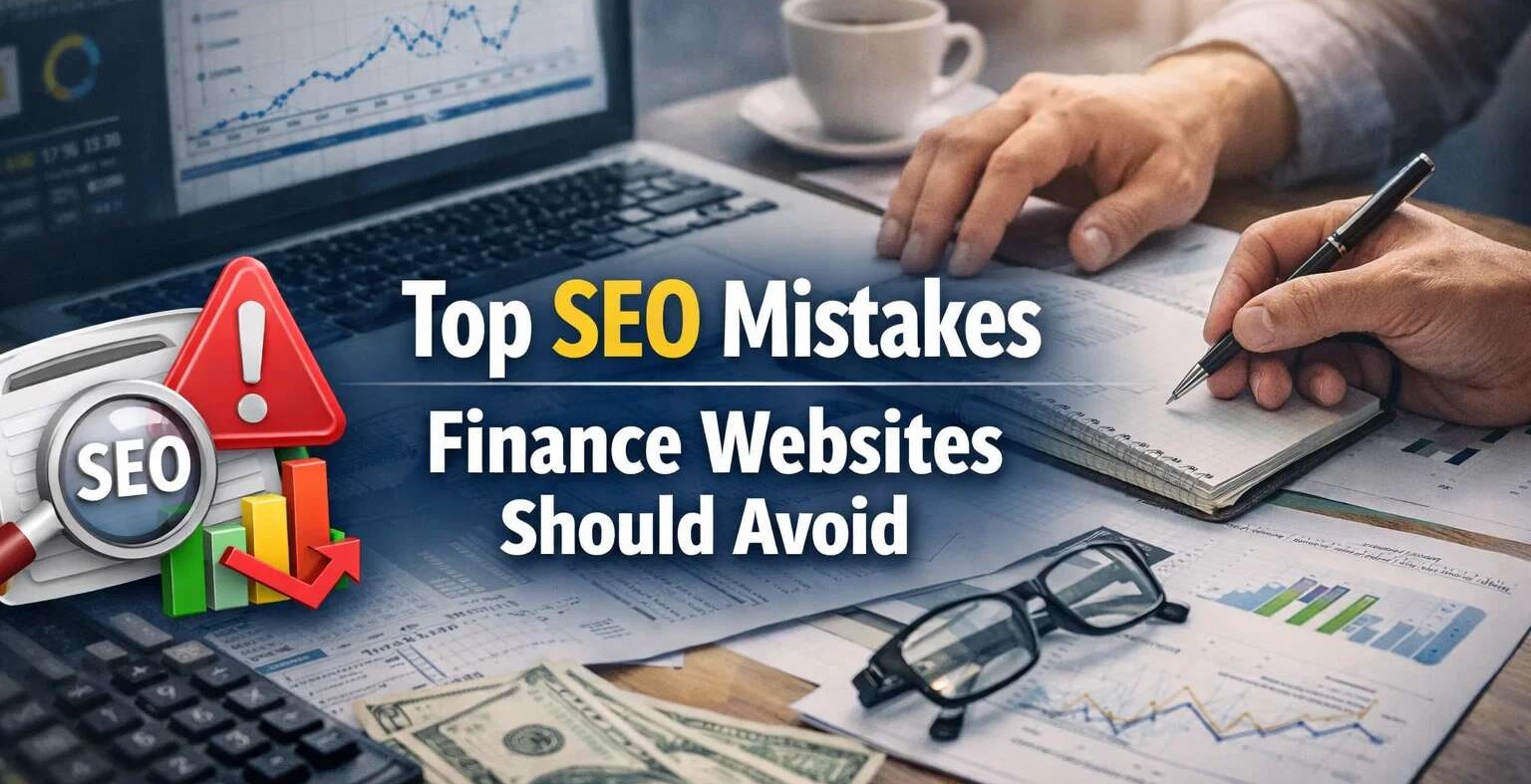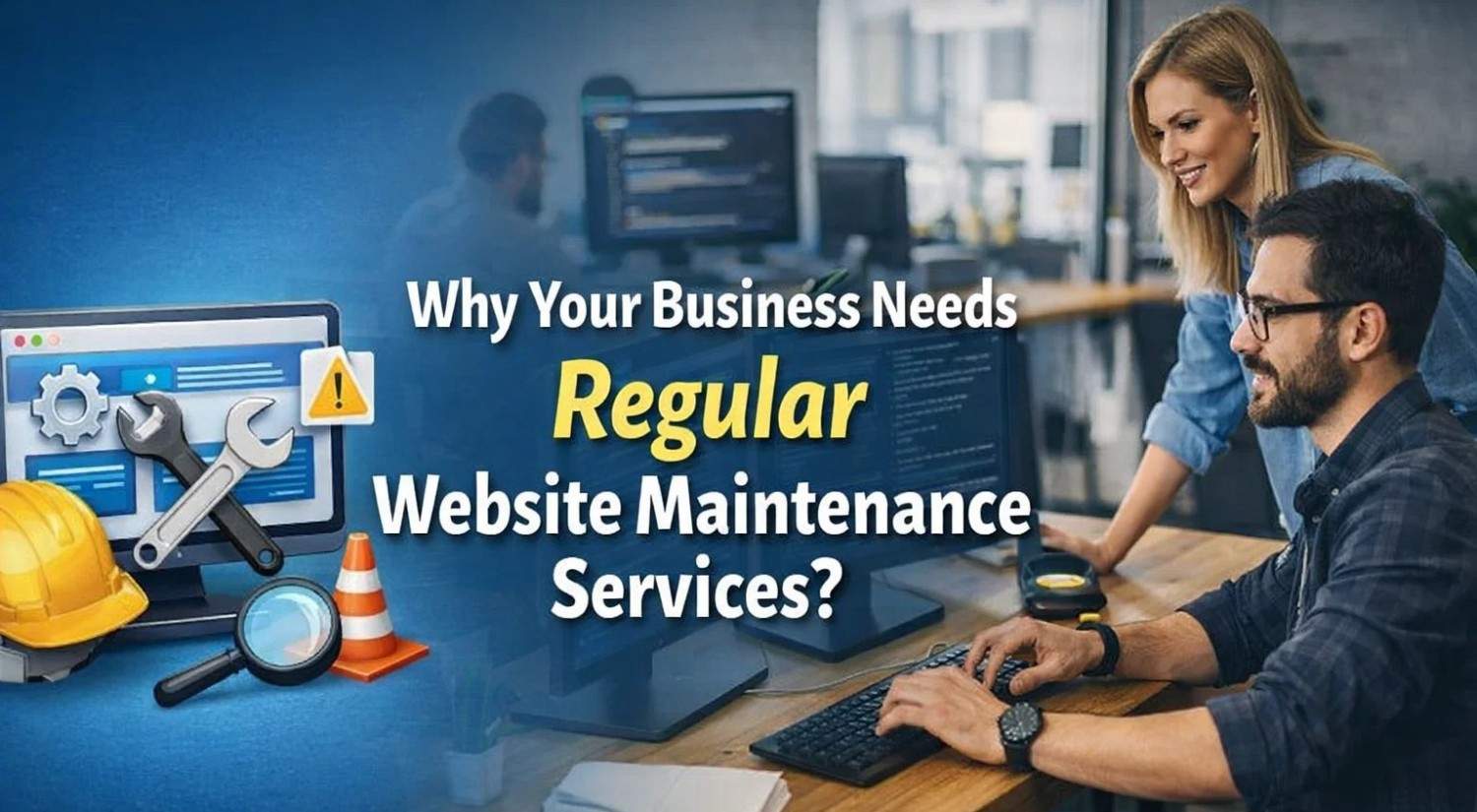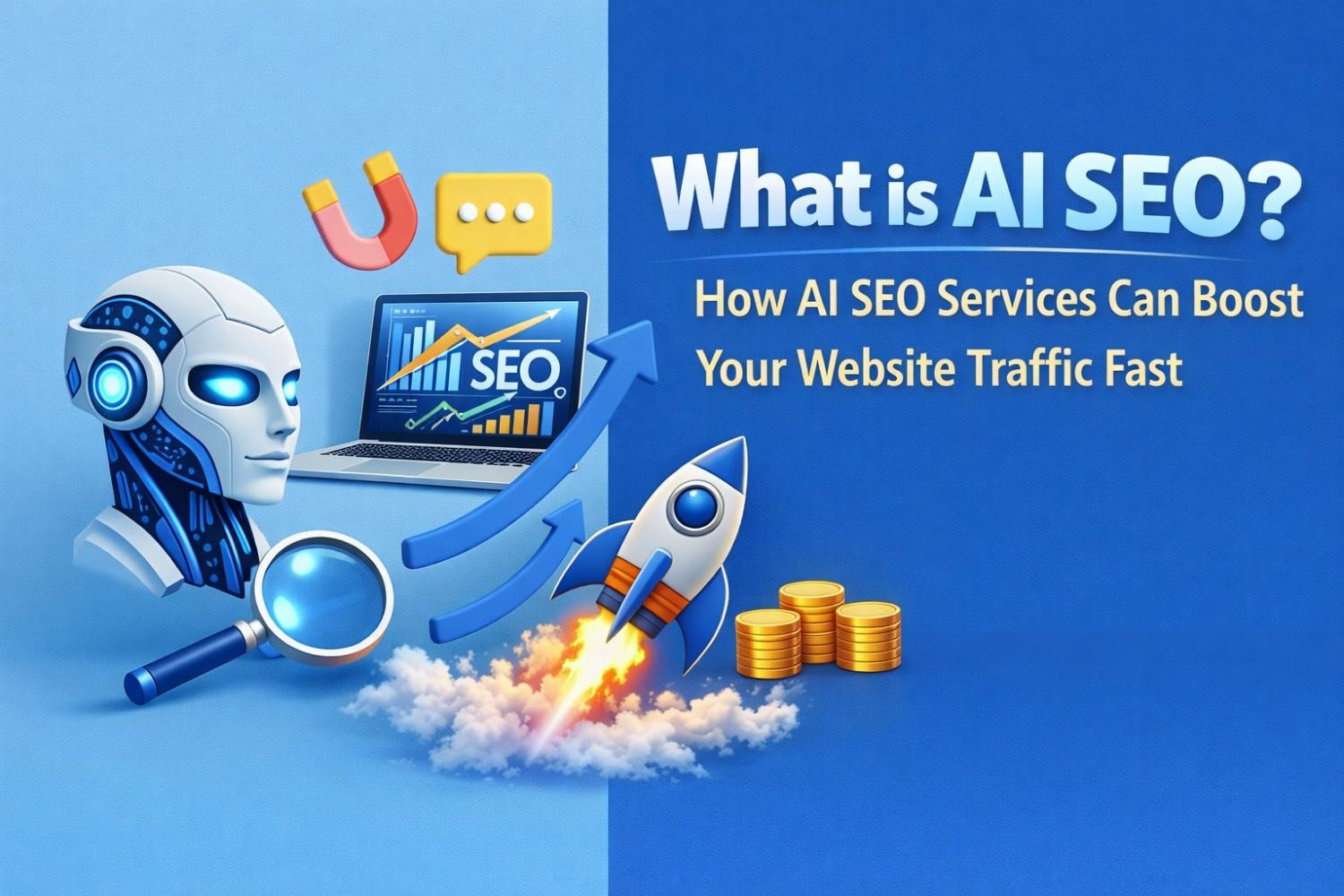
10 Advanced Reasons Your Website Isn’t Ranking on Google & How to Fix It
Having a website is just the first step, getting
it to rank on Google is where the real challenge lies. If your site isn’t
showing up, you might feel frustrated and unsure of what to do next.
There are many factors Google considers
when deciding rankings, and even small mistakes can hurt your visibility.
Today, experienced marketers of our digital marketing agency in Delhi are here to explore advanced reasons why your website might not be ranking on Google and offer practical solutions for each.
Poor Website Structure
Why It Hurts:
Google needs to easily find and
understand your website. If your site is messy, it becomes hard for Google to
navigate. This can stop Google from ranking your pages well. A confusing
website structure also makes it difficult for users to find what they need.
When this happens, people may leave quickly, which hurts your rankings even
more.
Fix It:
Organize your website clearly. Make sure
your main pages are easy to find with a simple menu. Create a sitemap to help
Google understand your site’s structure. This will help both Google and your
visitors find what they are looking for faster.
Slow Loading Speed
Why It Hurts:
If your website loads slowly, visitors
get frustrated and leave quickly. Google wants to give users the best
experience, so it doesn’t rank slow websites high. A slow website also uses
more data, which can be a problem for mobile users. The longer your site takes
to load, the more it hurts your chances of ranking well.
Fix It:
Make your website faster by reducing image sizes and using proper file formats. Use caching to store parts of your site for faster loading. Choose a good hosting provider with fast servers. You can also use tools like Google PageSpeed Insights to check and improve your website speed.
Improper Indexing by Google
Why It Hurts:
If Google can’t find and index your
pages, they won’t show up in search results. This means your website won’t get
traffic from Google. Sometimes, pages are accidentally blocked or hidden, which
stops Google from adding them to its index. If important pages are missing, it
reduces your website’s visibility and can hurt your rankings.
Fix It:
Check your website’s indexing status in Google Search Console. Make sure your important pages are not blocked by robots.txt or set to "noindex." Submit a sitemap to help Google find all your pages. This will ensure Google indexes your site properly and improves its chances of ranking.
Lack of Mobile Optimization
Why It Hurts:
Most people use their phones to browse
the internet. If your website isn’t mobile-friendly, it will be hard to use on
a phone. Google knows this and gives higher rankings to websites that work well
on mobile devices. If your website doesn’t look good or function properly on
phones, Google may rank it lower.
Fix It:
Make your website mobile-friendly by using responsive design. This means your site should adjust automatically to fit any screen size. Test your site on different phones to make sure everything works correctly. Google’s Mobile-Friendly Test tool can also help you see if your site needs improvements.
Unoptimized Keywords
Why It Hurts:
Keywords are words or phrases people
type into Google to find information. If you’re not using the right keywords,
your website won’t show up in search results. If you use very competitive
keywords, it’s hard to rank high. Using irrelevant keywords also reduces your
site’s chances of attracting the right visitors.
Fix It:
Do proper keyword research to find words people are searching for. Focus on long-tail keywords, which are more specific and less competitive. Use tools like SEMrush or Google Keyword Planner to help with research. Place the keywords naturally in your titles, content, and meta descriptions to improve your rankings.
Low-Quality Backlinks
Why It Hurts:
Backlinks are links from other websites
to yours. Google sees these links as votes of confidence. If your website has
low-quality or spammy backlinks, Google may think your site is not trustworthy.
This can lower your rankings. Having good, relevant backlinks is important for
building credibility and improving your position on Google.
Fix It:
Focus on getting backlinks from reputable and relevant websites. You can do this by creating valuable content that others want to link to. Avoid buying backlinks or getting links from untrustworthy sites. Use tools like Ahrefs or Google Search Console to monitor and remove harmful backlinks.
No HTTPS Security
Why It Hurts:
Websites without HTTPS are less secure.
Google prefers secure websites and marks sites without HTTPS as “not secure.”
This can scare away visitors who see the warning. It also affects your ranking,
as Google gives priority to HTTPS sites. Without security, your site may be at
risk of data breaches or attacks.
Fix It:
Get an SSL certificate to secure your site and change your website’s URL from HTTP to HTTPS. Most hosting providers offer SSL certificates. Once installed, make sure all your pages use HTTPS. This will help improve your rankings and protect your visitors’ information.
Poor User Engagement Metrics
Why It Hurts:
Google tracks how users interact with
your site. If visitors leave quickly or don’t click on anything, Google may
think your content isn’t valuable. High bounce rates and low engagement hurt
your rankings. If people don’t stay or interact with your website, Google will
likely rank it lower.
Fix It:
Make your website more engaging by offering valuable content, clear navigation, and a clean design. Add images, videos, and easy-to-read text to keep people interested. Make sure your site is easy to use and loads quickly. Improve your calls-to-action (CTAs) to encourage visitors to stay and explore more.
Ignoring Technical SEO
Why It Hurts:
Technical
SEO includes behind-the-scenes work that helps Google understand your site.
If your website has issues like broken links, missing meta tags, or slow pages,
Google may have trouble ranking it. These problems confuse Google and make it
harder for your site to show up in search results.
Fix It:
Use tools like Screaming Frog or Ahref to find technical issues on your site. Fix broken links and add meta tags for better visibility. Make sure your site loads fast and has no hidden errors. Regularly audit your website to catch and fix any technical problems that may harm your rankings.
Weak Local SEO
Why It Hurts:
If your business serves a local area,
you need local SEO to appear in search results. Without it, people near you
won’t find your website easily. Google wants to show local businesses to local
users. If you don’t optimize for local searches, your website will be harder to
find.
Fix It:
Make sure your business is listed on
Google My Business with correct details like name, address, and phone number.
Use local keywords that include your city or neighborhood. Get local reviews
and build links from local websites. This will help improve your visibility for
people searching in your area.
By addressing these issues, you can improve
your website’s performance and get the visibility it deserves.
Related Services -
You can also take the help of our professional
website designers who knows dos and don’ts of SEO.
Ecommerce Solutions
SEO Solutions’
Ecommerce Solutions






